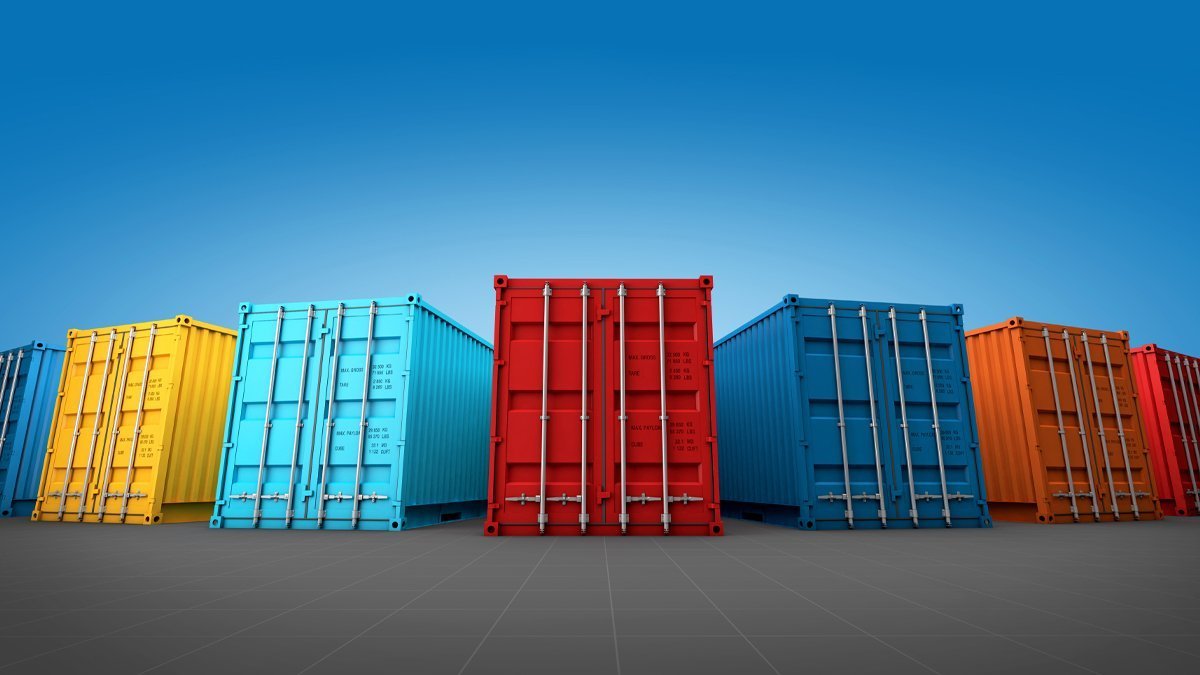NAVIGATING THE FULFILLMENT JOURNEY: INSIDE THE 3PL WAREHOUSE

Strong 8k brings an ultra-HD IPTV experience to your living room and your pocket.
The term third party logistics (3PL) encapsulates the delegation of ecommerce logistics functions to an external service provider, covering tasks like inventory management, warehousing, and fulfillment. These providers equip ecommerce businesses with the means to achieve more, leveraging tools and infrastructure to streamline retail order fulfillment. The amalgamation of warehousing operations and transportation services into the supply chain integration gave rise to what we now recognize as third-party logistics.
Give a step by step process of the third party logistics fulfillment process?
Here's a comprehensive walkthrough of the entire process within a 3PL warehouse:
- Receiving: This initial step involves accepting and storing incoming inventory, which is crucial for subsequent shipping processes
- 3PL Warehousing: Upon inventory receipt, the items are allocated dedicated storage spaces based on SKU. Choosing a 3PL provider with ample storage space that can scale alongside your growing product line is crucial.
- Picking: Orders can be manually uploaded or automatically integrated into the 3PL system. The picking team then retrieves the specified items.
- Packing: Securing the items for shipping involves choosing appropriate packing materials, which can range from unbranded boxes to bubble mailers. Some 3PLs charge separately for these materials.
- Shipping: The third party logistics (3PL) usually purchases and prints shipping labels on behalf of the merchant, often working with preferred carriers to secure competitive shipping rates. Tracking details are then updated for customers.
- Returns: Many 3PLs offer return processing services. Customers returning items often utilize return shipping labels provided by the 3PL. The provider processes the return and takes steps based on predefined policies.
What are the advantages of third party logistics?
Cost Efficiency
- Reduced Overhead Costs: By outsourcing logistics, businesses avoid investing in warehouse infrastructure, technology, and personnel.
- Economies of Scale: Leveraging a 3PL's infrastructure leads to reduced per-unit costs in storage and shipping as volumes increase.
Specialized Expertise
- Industry Knowledge: 3PLs offer specialized insights tailored to specific industries or markets, optimizing logistics operations.
- Advanced Technology: Sophisticated software enhances inventory management, order processing, and tracking.
Flexibility and Adaptability
- Tailored Services: Customizable services allow scaling based on seasonal demands or market fluctuations.
- Geographical Reach: Access to a 3PL's network expands delivery reach, reaching diverse locations or untapped markets.
Focus on Core Competencies
Enhanced Focus: Offloading logistics responsibilities lets businesses concentrate on core competencies like product development and customer service.
Risk Mitigation
Reduced Risks: Sharing responsibilities with a 3PL mitigates various logistical challenges, including inventory management and compliance issues.
Outsourced Operations:
Handing over order fulfillment to a 3PL streamlines warehouse management and staffing complexities, offering access to shared storage spaces in expansive warehouses.
Efficient Operations:
Proficient warehouse teams efficiently handle tasks, from receiving and organizing inventory to picking and securely packaging products, ensuring timely delivery to customers.
Scalability:
As businesses grow, partnering with a 3PL enables handling increased order volumes without hiring extra staff. Their network expertise can secure cost-effective shipping rates and faster delivery options.
When to look for third party logistics?
- Financial Viability: Assess whether engaging a 3PL aligns with the company's financial objectives and cost-saving measures.
- Internal Resources: Evaluate the availability and capability of internal resources required for effective logistics management.
- Enhanced Efficiency: Consider if employing a 3PL will streamline operations and improve overall efficiency.
- Rapid Growth Scenario: Evaluate if unforeseen growth is straining existing resources and increasing labour, manufacturing, or facility costs.
- Resource Optimization: Determine if a 3PL can alleviate resource constraints without draining internal capacities, time, or finances.
- Technology Advantages: Assess if the technology offered by a 3PL can provide modern solutions without significant financial investment.
- Logistics Solutions: Consider hiring a 3PL if experiencing persistent inventory inaccuracies, inefficiencies, or critical mistakes.
- Inventory Management: Assess whether inconsistent inventory capacity and unpredictable costs necessitate the expertise of a reliable 3PL for streamlined inventory solutions.
- Workflow Management: Contemplate if managing internal workflows hinders core business activities and whether outsourcing could optimize operations.
By considering these factors, businesses can determine if engaging a 3PL aligns with their operational needs and long-term growth strategies.
What are the types of third party logistics service providers?
- Standard 3PL Providers: They furnish basic logistics services such as transportation, warehousing, and distribution.
- Service Developers: These providers specialize in logistics services and often offer additional value-added services like packaging or assembly.
- Customer Adapter: Engaging with a Customer Adapter means handing over your logistics entirely, allowing them to manage your supply chain.
- Customer Developer: These providers customize supply chain solutions to match the specific needs of individual customers.
What’s the differences between 3PL & 4PL
- Scope and Role: A 4PL, compared to a 3PL, assumes a more comprehensive role, managing the entire supply chain from planning and design to execution and oversight.
- Primary Function: 3PLs primarily handle physical logistics like transportation and warehousing, while a 4PL acts as a coordinator, integrating multiple 3PLs and various supply chain functions.
- Engagement Model: Typically, a 4PL operates independently through a joint venture or long-term contract between a primary client and multiple partners, enabling strategic supply chain management.
- Strategic Planning: Unlike 3PLs, 4PLs actively engage in strategic decision-making, providing insights and shaping the overall supply chain strategy. Their emphasis lies in enhancing efficiency and performance across the entire supply network.
What are the factors to consider before selecting third party logistics?
- Industry Expertise: Assess the provider's industry experience and their ability to meet your specific logistics needs.
- Technological Edge: Review their systems for inventory management, order processing, and integration capabilities with your systems.
- Scalability Assurance: Ensure the provider can grow with your business without compromising quality or escalating costs.
- Global Reach: Consider their network's efficiency in reaching your markets, particularly for international shipping needs.
- Service Level Agreements (SLAs): Scrutinize SLAs for delivery times, order accuracy, and responsiveness to ensure they align with your standards.
- Cost Transparency: Understand the pricing structure, additional fees, and the flexibility to adjust services as your needs evolve.
- Reputation and References: Research their reputation, read reviews, and seek client references to gauge reliability and satisfaction levels.
- Risk Preparedness: Evaluate their contingency plans for unforeseen events to minimize potential disruptions to your operations.
- Ethical Practices: Consider their commitment to sustainability, ethics, and adherence to industry regulations.
Summary
Third-Party Logistics is pivotal in modern supply chains, offering tailored solutions for businesses seeking efficient, scalable, and specialized logistics services. Amazon Global Selling platform showcases the transformative impact of efficient logistics in enabling businesses to thrive in the global marketplace.
Note: IndiBlogHub features both user-submitted and editorial content. We do not verify third-party contributions. Read our Disclaimer and Privacy Policyfor details.








